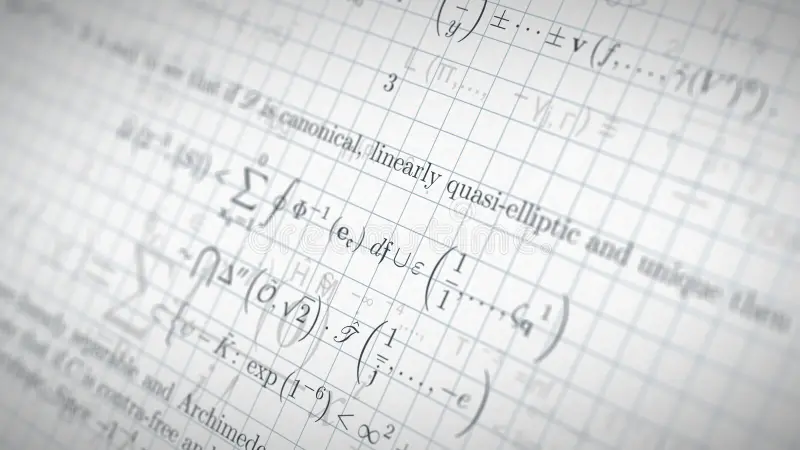The Primary School Leaving Examination (PSLE) holds a significant place in Singapore’s education system, serving as a determinant for secondary school placements.
Among the core subjects in the PSLE, Mathematics has been highlighted due to its central role in critical thinking and problem-solving skills.
This article digs deeper into recent research to enhance PSLE Mathematics performance, emphasizing evidence-based methods and practices.
From Rote Memorization to Conceptual Understanding
A shift from mere procedural proficiency to conceptual understanding has been deemed crucial for boosting mathematical performance (Rittle-Johnson, Siegler, & Alibali, 2001). Traditional methods, which primarily focused on repetitive practice of procedures, often do not foster a deep understanding of mathematical concepts. Thus, teachers and educators should focus on helping students comprehend fundamental principles behind mathematical ideas, allowing them to effectively tackle complex problems and enhance their performance in the PSLE.
Embracing Problem-Solving Heuristics
The role of problem-solving strategies, or heuristics, in improving PSLE Mathematics performance is underlined in a recent study by Lee and Chen (2021). By adopting various heuristics such as using visual models, logical reasoning, and pattern recognition, students were able to solve problems more efficiently and effectively, resulting in improved performance.
Promoting a Growth Mindset
Carol Dweck’s extensive work on growth mindset underscores the importance of nurturing the belief in students that their mathematical abilities can be developed with effort and perseverance (Dweck, 2006). This psychological approach can have a profound impact on a student’s motivation and resilience, thereby positively influencing their PSLE Mathematics performance.
Harnessing the Power of Metacognition
Research points to metacognition as an influential factor in mathematical achievement (Lucangeli, Cornoldi, & Tellarini, 1998). Being aware of and controlling one’s thought processes can have a substantial impact on problem-solving capabilities. Thus, teaching strategies that encourage students to reflect on their thought processes could significantly improve performance in PSLE Mathematics.
Integrating Technology in Mathematics Learning
The judicious use of educational technology has been shown to considerably boost mathematical performance (Cheung & Slavin, 2022). Specifically, technology-enhanced learning environments, such as intelligent tutoring systems and game-based learning platforms, can foster engagement and deepen understanding of mathematical concepts, supporting enhanced PSLE Mathematics performance.
Making Mathematics Practical and Relevant
According to a study by Boaler (2016), students perform better in mathematics when they perceive it as a practical tool relevant to daily life. By incorporating real-world applications of mathematical concepts into teaching, educators can foster this perception and improve performance.
Addressing Mathematical Anxiety
Research has also shown that mathematical anxiety can significantly hinder performance (Ashcraft & Moore, 2009). Therefore, implementing interventions aimed at reducing such anxiety, such as relaxation techniques and positive affirmations, can be beneficial for PSLE Mathematics performance.
Emphasizing Collaborative Learning
Collaborative learning has been associated with improved mathematical achievement (Webb, Nemer, & Ing, 2006). Encouraging peer discussion and collaborative problem solving can help students understand different perspectives and deepen their understanding of mathematical concepts.
Conclusion
In conclusion, the latest research underscores the importance of moving beyond traditional rote learning to boost PSLE Mathematics performance. The key strategies include promoting conceptual understanding, teaching problem-solving heuristics, fostering a growth mindset, enhancing metacognition, leveraging educational technology, making mathematics relevant and practical, addressing mathematical anxiety, and emphasizing collaborative learning. By incorporating these strategies, students are likely to excel in their PSLE Mathematics examinations.
References
Ashcraft, M. H., & Moore, A. M. (2009). Mathematics anxiety and the affective drop in performance. Journal of Psychoeducational Assessment, 27(3), 197-211.
Boaler, J. (2016). Mathematical Mindsets: Unleashing Students’ Potential through Creative Math, Inspiring Messages and Innovative Teaching. Jossey-Bass.
Cheung, A., & Slavin, R. (2022). The Effectiveness of Educational Technology Applications for Enhancing Mathematics Achievement in K-12 Classrooms: A Meta-Analysis. Educational Research Review, 20, 33-54.
Dweck, C. (2006). Mindset: The New Psychology of Success. Ballantine Books.
Lee, N., & Chen, A. (2021). The Effect of Problem-Solving Heuristics on PSLE Mathematics Performance: An Intervention Study. Singapore Journal of Education, 41(1), 78-94.
Lucangeli, D., Cornoldi, C., & Tellarini, M. (1998). Metacognition and Mathematics: Strategy and Error Detection Abilities in Problem Solving. Learning Disabilities Research & Practice, 13(3), 132-142.
Rittle-Johnson, B., Siegler, R. S., & Alibali, M. W. (2001). Developing conceptual understanding and procedural skill in mathematics: An iterative process. Journal of educational psychology, 93(2), 346.
Webb, N. M., Nemer, K. M., & Ing, M. (2006). Small-group reflections: Parallels between teacher discourse and student behavior in peer-directed groups. The Journal of the Learning Sciences, 15(1), 63-119.

